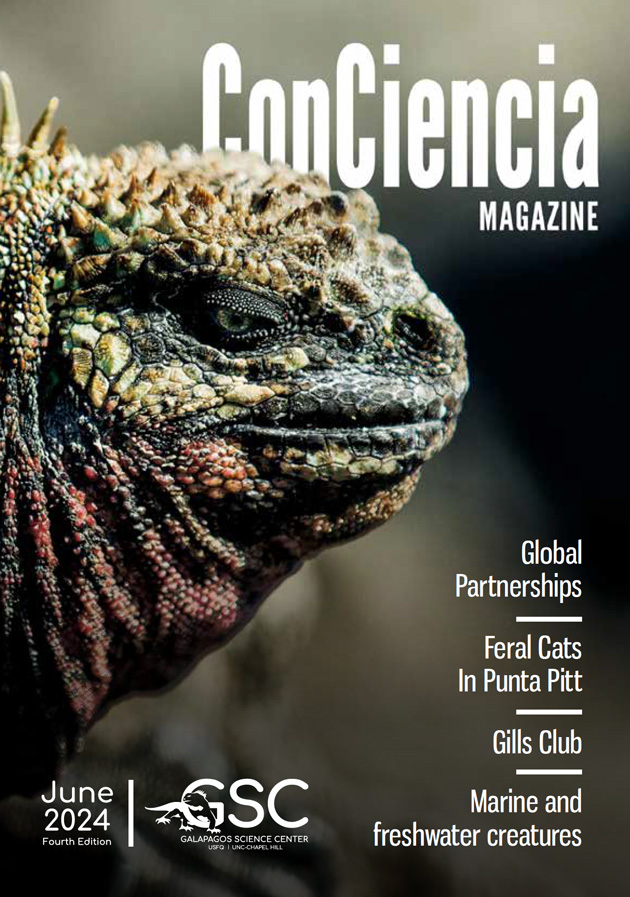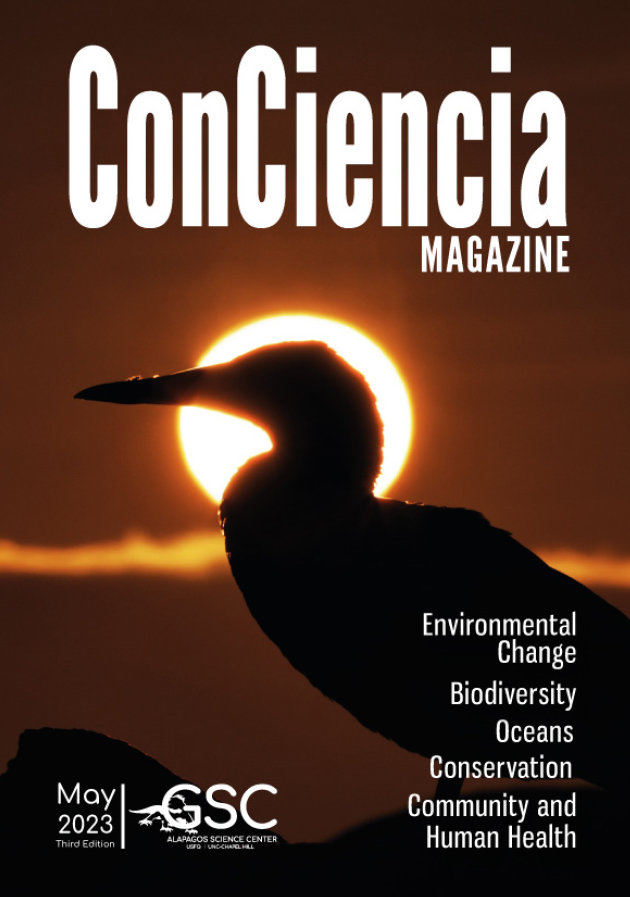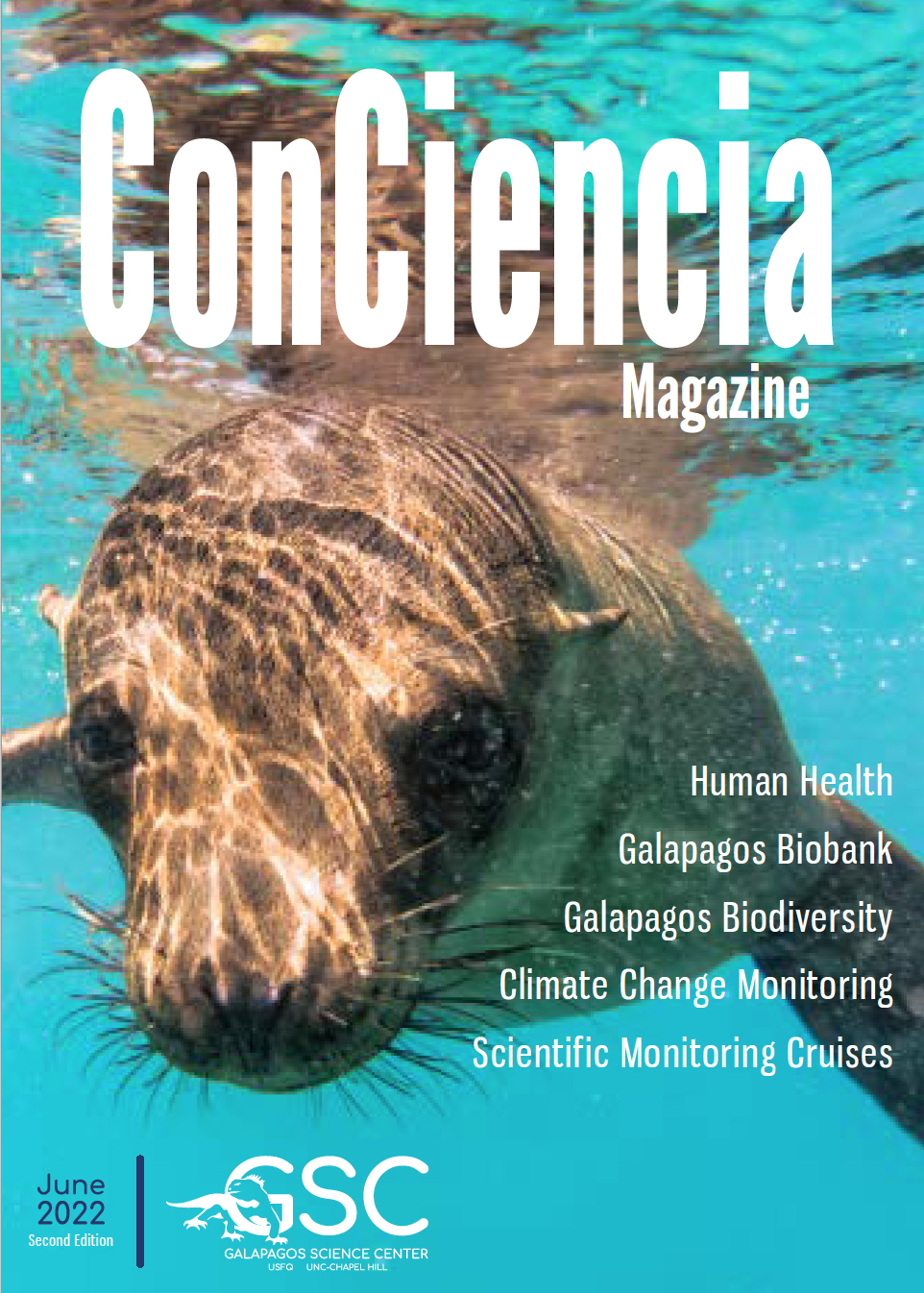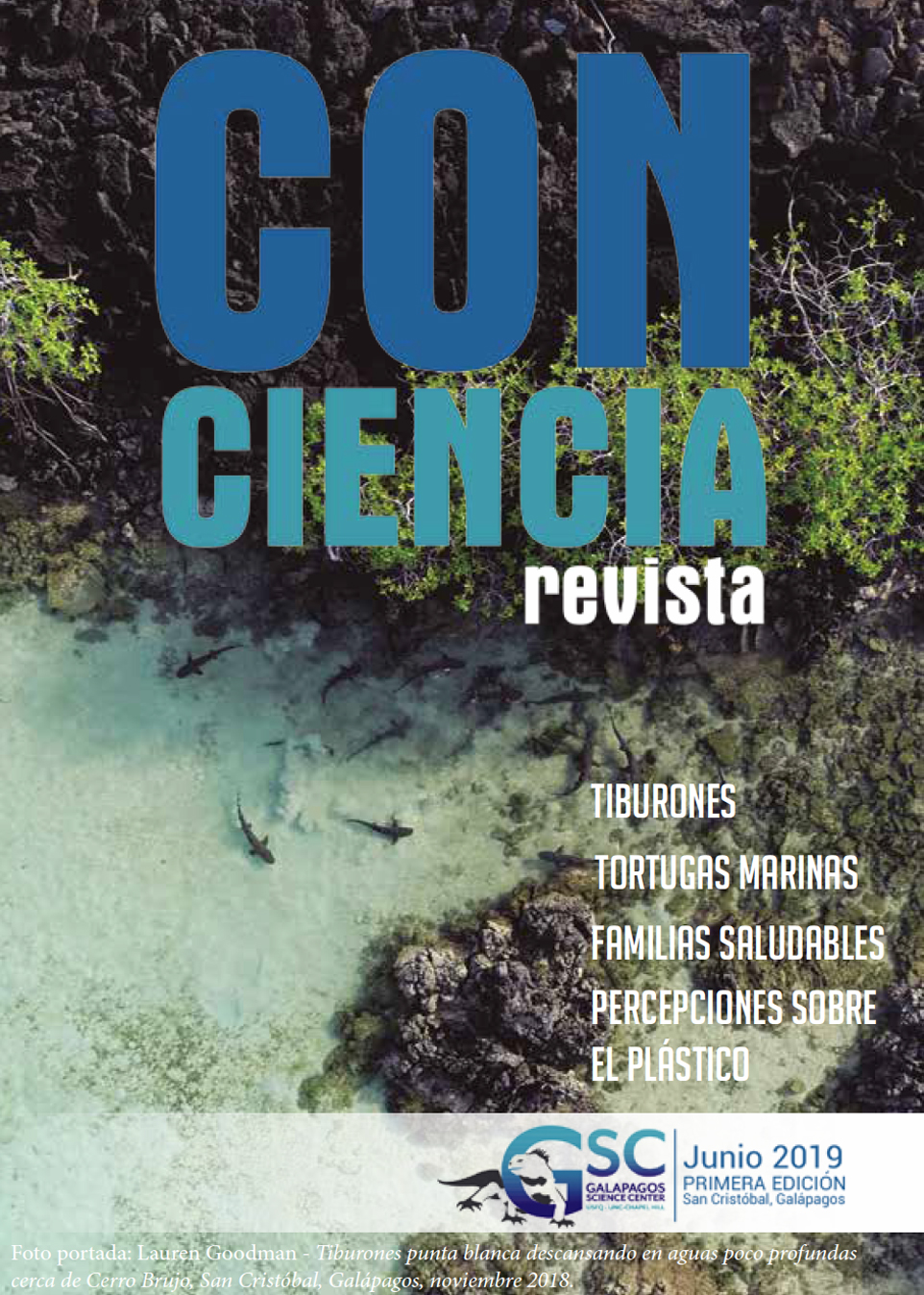NEWS & EVENTS
LATEST NEWS
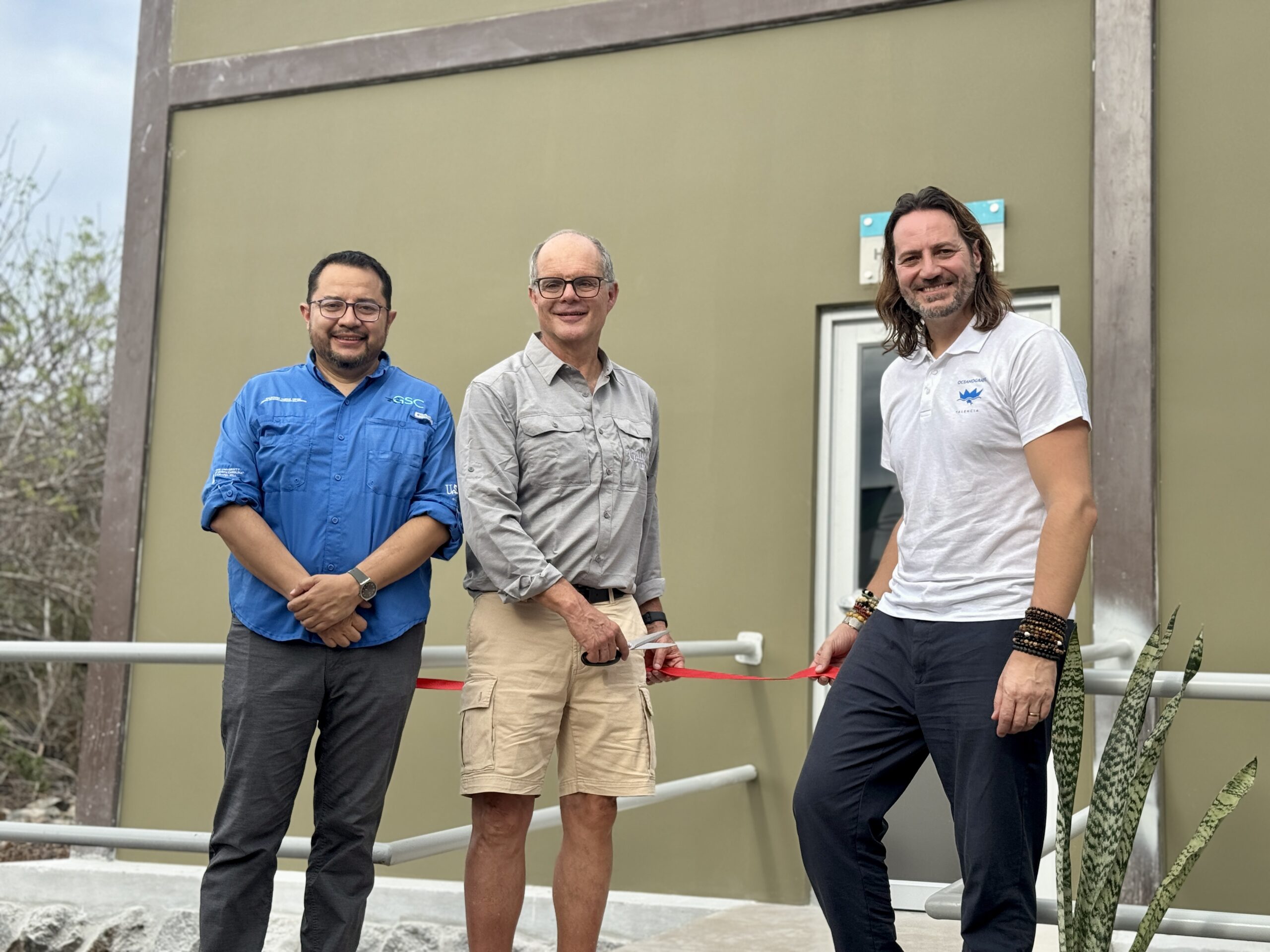
USFQ, through the Galapagos Science Center, promotes a comprehensive wildlife health model in the archipelago
At Universidad San Francisco de Quito (USFQ), through the Galapagos Science Center (GSC), we are committed to biodiversity conservation and the well-being of island ecosystems. As part of this effort, we are leading the strategic planning for the implementation of a Comprehensive Wildlife Health System in the Galapagos Islands, an innovative model based on the One Health approach, which recognizes the connection between animal, environmental, and human health.
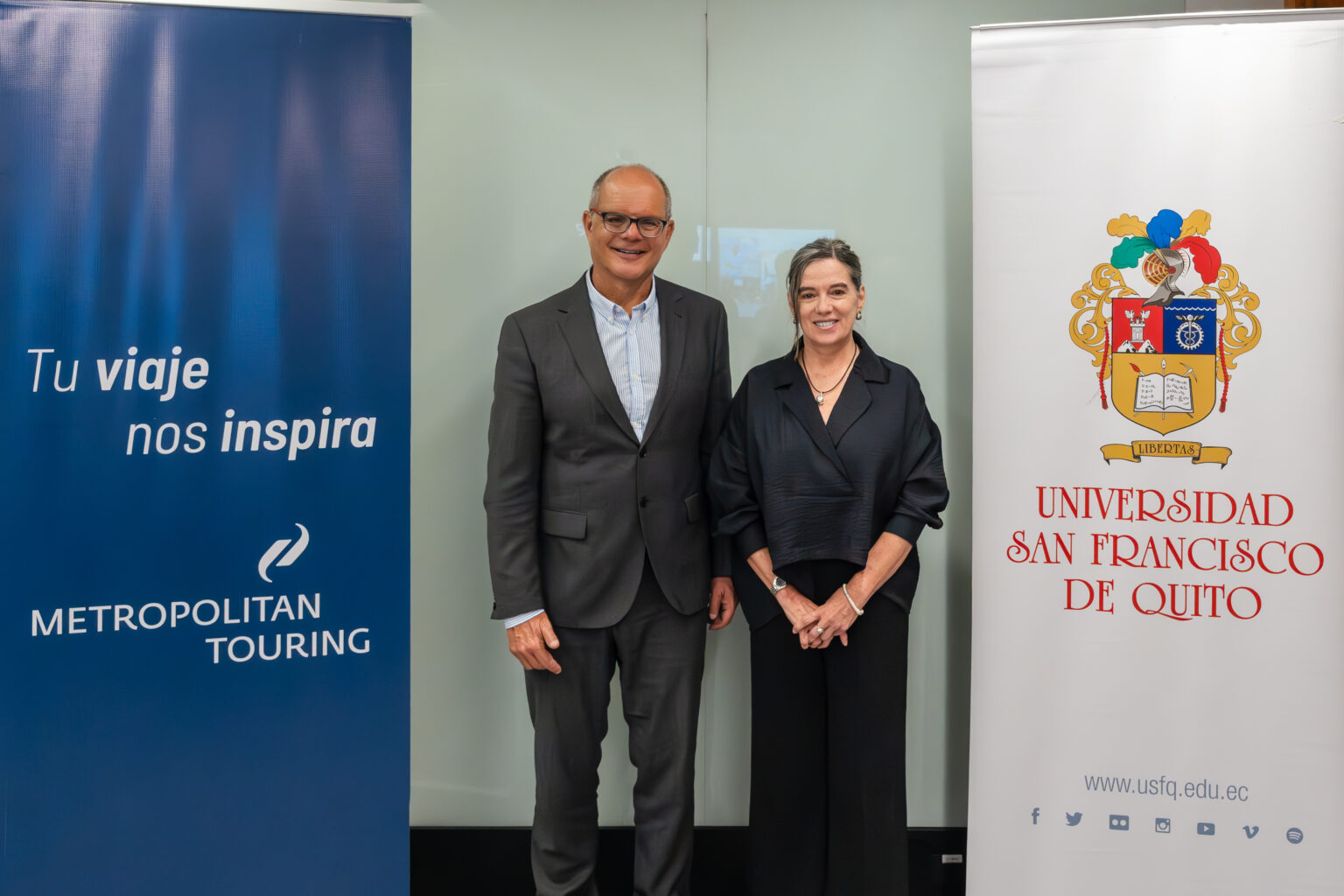
USFQ, Metropolitan Touring, and Finch Bay Hotel sign an agreement to protect whale sharks in the Galápagos
Universidad San Francisco de Quito (USFQ) and Metropolitan Touring have signed a collaboration agreement for the conservation of the whale shark, the world’s largest fish. This partnership reaffirms the commitment of both institutions to sustainability and the protection of the biodiversity of the Galápagos Islands. The initiative is being carried out in coordination with the Galápagos National Park Directorate (GNPD), the authority responsible for protecting the archipelago’s unique ecosystems.
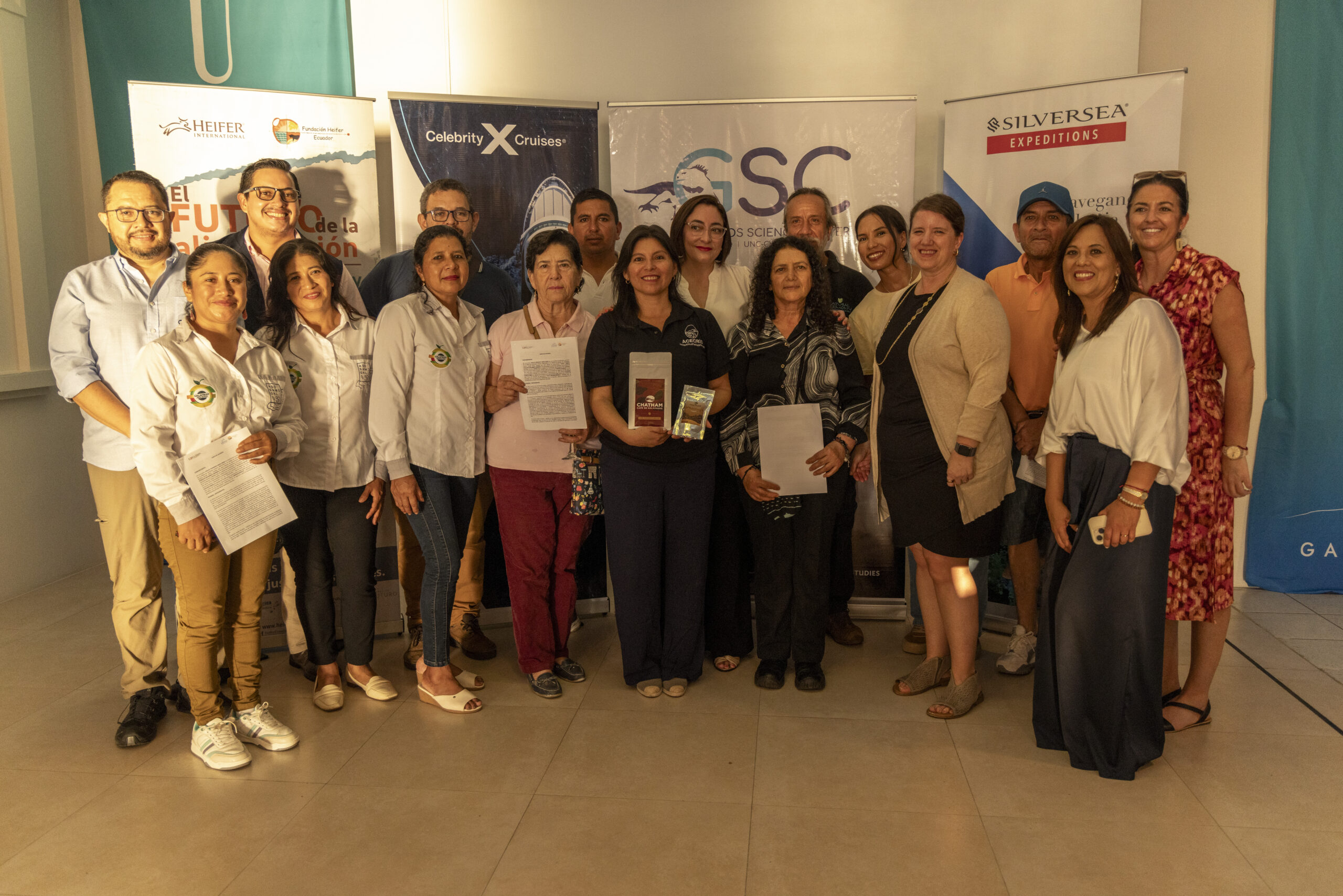
REACCT Project Relaunches in Galápagos: Supporting Local Businesses and Sustainable Development
Six agro-based businesses adding value to local raw materials have been selected for the REACCT (Reactivating the Economy through Science, Community, and Work) project in San Cristóbal, Galápagos. These businesses: Galafruit, El Trapiche, Asecris/Chatham, Green Island, Lácteos San Cristóbal, and Galápagos Natural Harmony, were chosen based on criteria such as impact, market access, and innovation. All of them have previously participated in the Rural Business Schools initiative led by Heifer Ecuador Foundation in San Cristóbal.
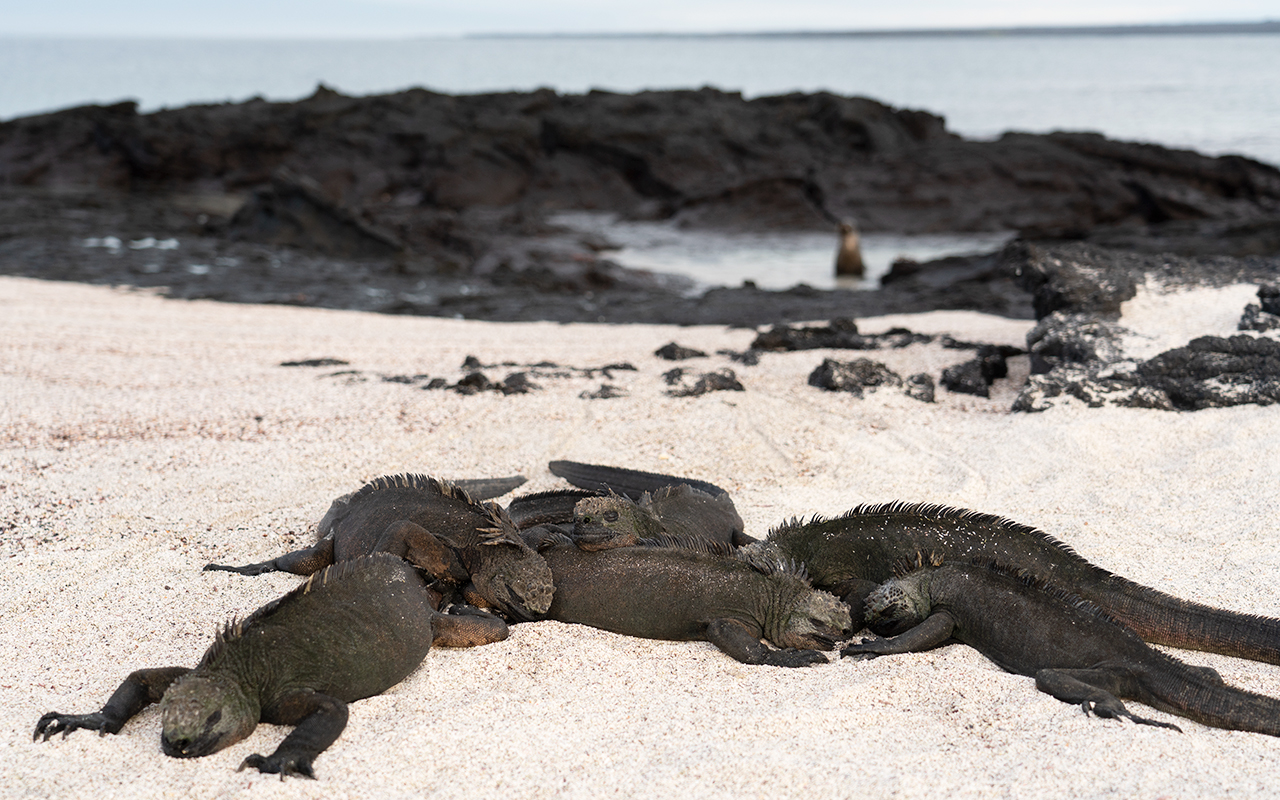
The effect of “El Niño” on marine iguanas: A study to understand its impact
Captain Darwin is an NGO dedicated to documenting environmental and biodiversity changes in the places visited by world-famous naturalist Charles Darwin during his voyage on the HMS Beagle 189 years ago. This NGO provides logistical support, through the use of its vessel, to local researchers at each stop on Darwin’s historic voyage.
SCIENTIFIC ARTICLES
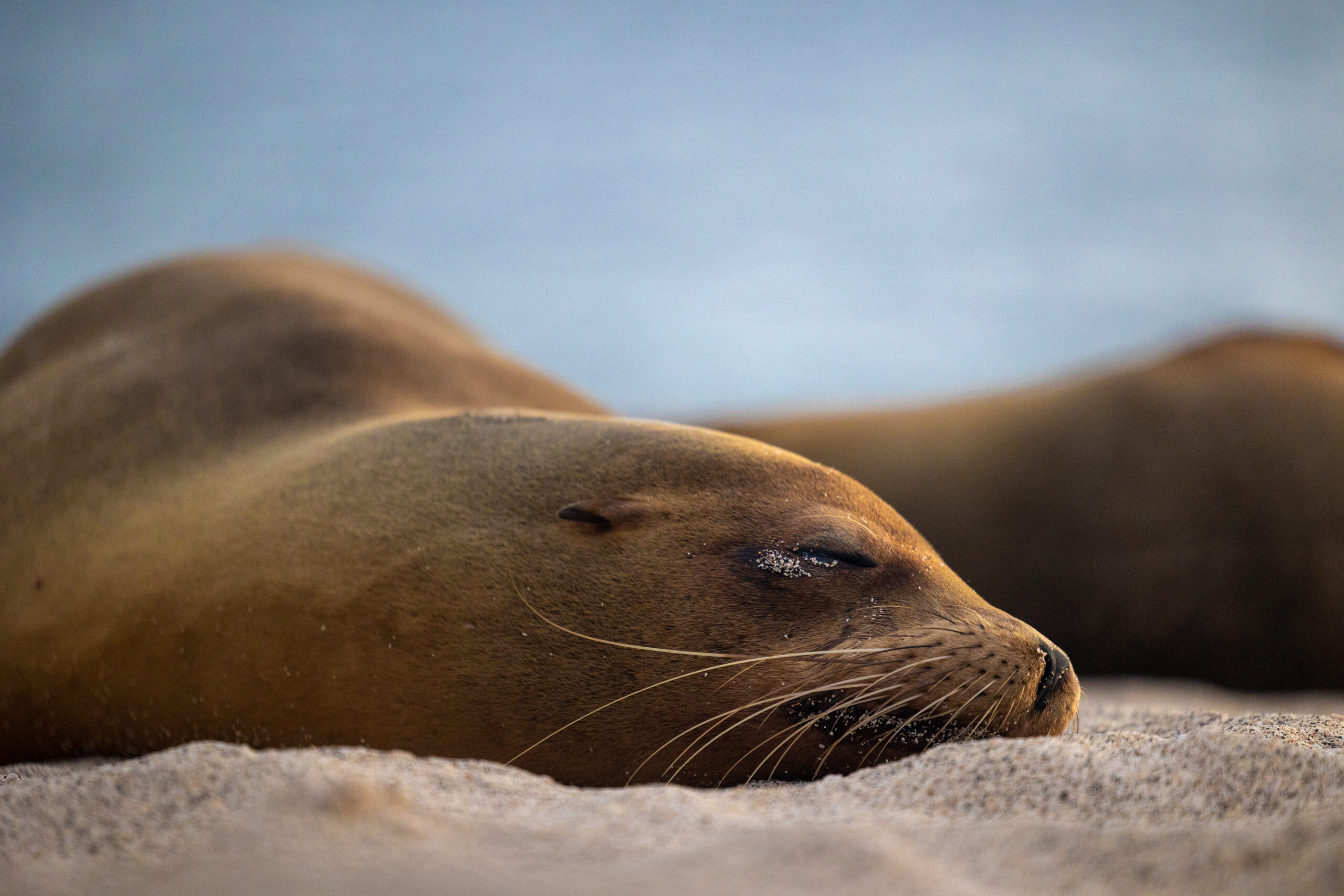
Molecular Discovery of Filarial Nematode DNA in an Endangered Wild Pinniped (Galapagos Sea Lion, Zalophus wollebaeki)
Environmental changes contribute to the arrival of non-native species and their pathogens in sensitive ecosystems such as the Galápagos Islands. This poses a significant risk to the archipelago’s unique species, including the Galápagos sea lion (Zalophus wollebaeki), an endemic and endangered animal that faces the threat of contracting diseases from introduced domestic animals.
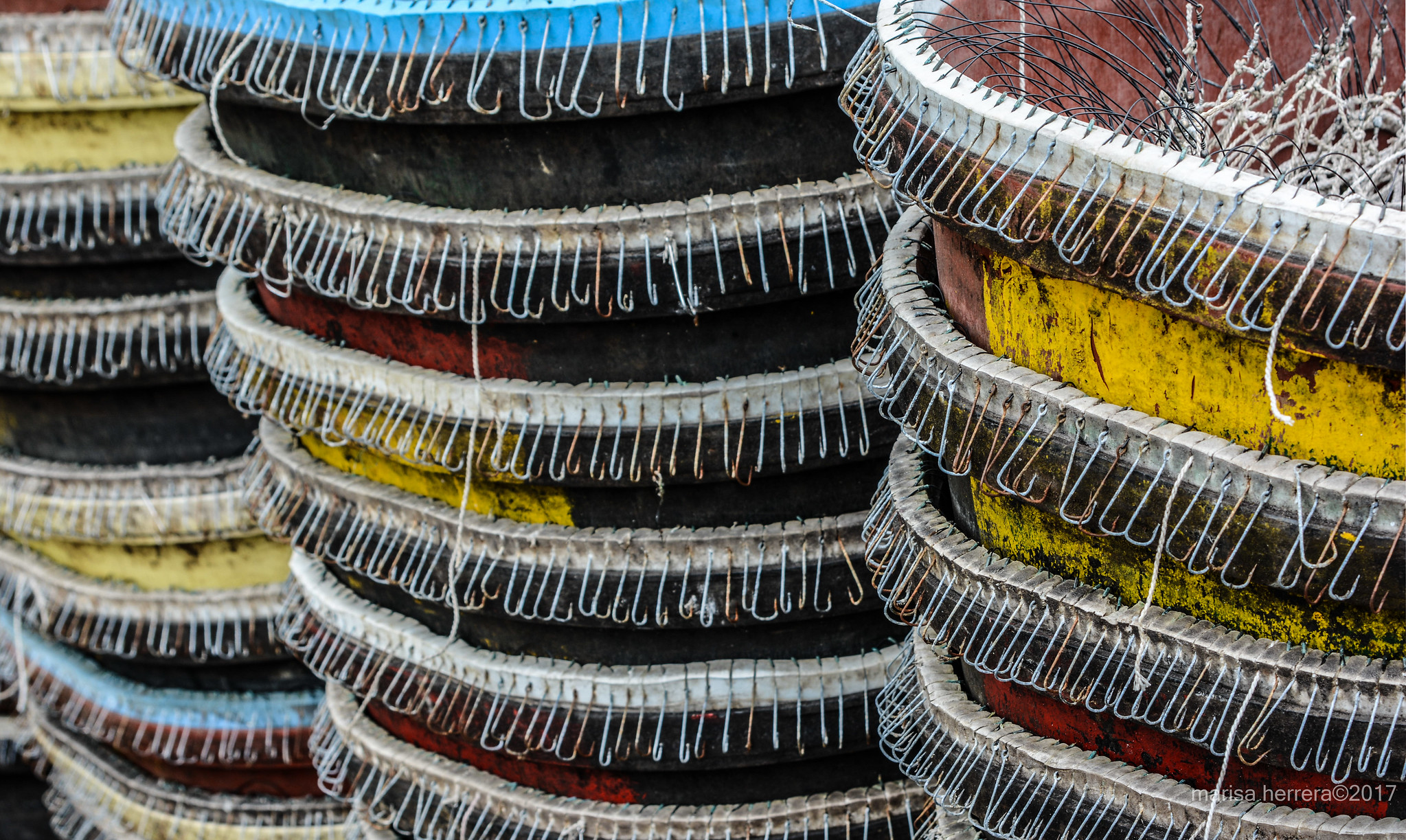
Commentary: “Addressing illegal longlining and ghost fishing in the Galapagos marine reserve: an overview of challenges and potential solutions”
The commentary on the article “Addressing illegal longlining and ghost fishing in the Galapagos marine reserve: an overview of challenges and potential solutions” by Alex Hearn and Santiago Bucaram questions the proposal to develop an open water tuna fishery, warning about the risks of legalizing harmful fishing practices for the marine ecosystem. Additionally, they analyze the challenges faced by the Galapagos due to the use of illegal longlines.
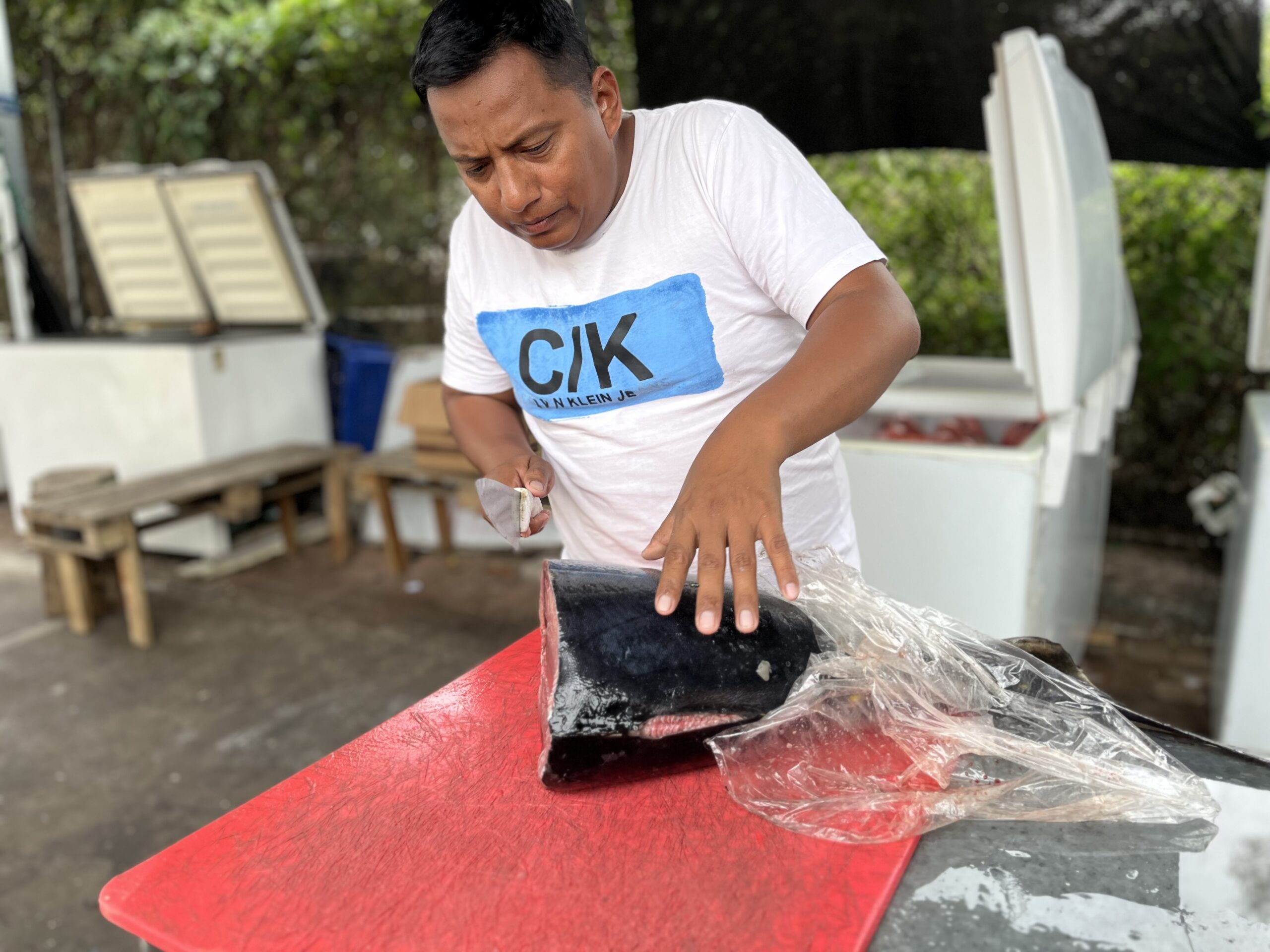
Assessing economic losses in artisanal fisheries from marine plastic pollution in coastal Ecuador and Peru
This study reveals that the artisanal fishing sector along the coastal regions of Ecuador (excluding Galapagos) and Peru faces significant economic losses due to the considerable presence of marine plastic debris which directly impacts productivity.
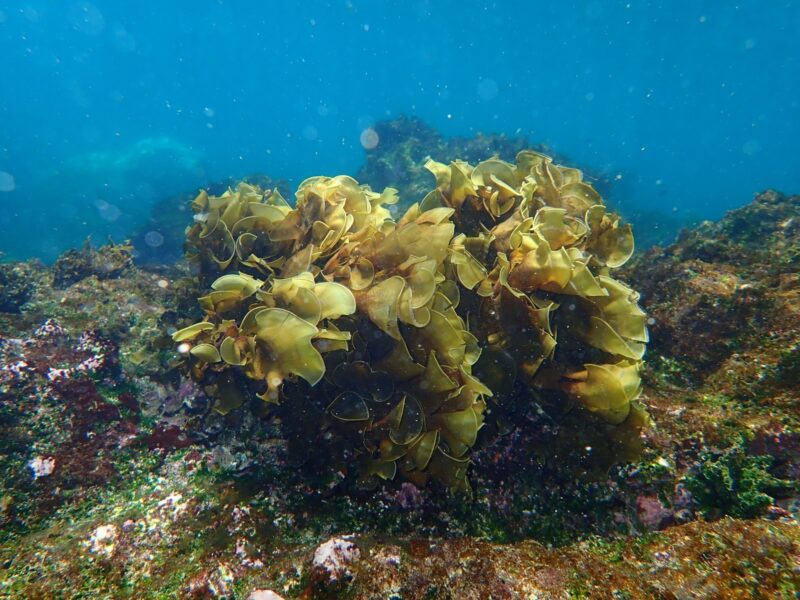
Nutrient enrichment can increase the thermal performance of Galápagos seaweeds
This study, published in Marine Ecology Progress Series, examines how nutrient availability can help marine macroalgae in the Galápagos Islands better adapt to higher temperatures—a challenge they face due to climate change. Macroalgae are essential aquatic plants for marine ecosystems as they provide food and shelter for many species. However, their ability to survive and thrive largely depends on environmental conditions, such as the amount of nutrients in the water.
EVENTS
6TH GALAPAGOS RESEARCH AND CONSERVATION SYMPOSIUM
The 6th Galápagos Research and Conservation Symposium took place on Monday, July 15 and Tuesday, July 16, 2024 at the Charles Darwin Convention Center on San Cristóbal, Galápagos. This important multidisciplinary event was organized by the Galapagos Science Center, with the sponsorship of the University of North Carolina at Chapel Hill and the Universidad San Francisco de Quito with the endorsement of the Galapagos National Park.
5TH GALAPAGOS RESEARCH AND CONSERVATION SYMPOSIUM
Puerto Baquerizo Moreno, on San Cristóbal Island, will host the 5th Galapagos Research and Conservation Symposium. This significant multidisciplinary event will feature scientific presentations and community-focused talks, showcasing research and initiatives related to conservation, environmental change, biodiversity and oceans, health, and community initiatives.
World Summit on Island Sustainability
In 2022, the Galapagos Science Center (GSC) and the broader UNC & USFQ Galapagos Initiative celebrated its 10th Anniversary. The GSC hosted the World Summit on Island Sustainability on June 26–30, 2022 at the Galapagos Science Center and the Community Convention Center on San Cristobal Island.
Read our Epub Magazine 2024 Edition
Read our Epub Magazine 2023 Edition
Read our Epub Magazine 2022 Edition

